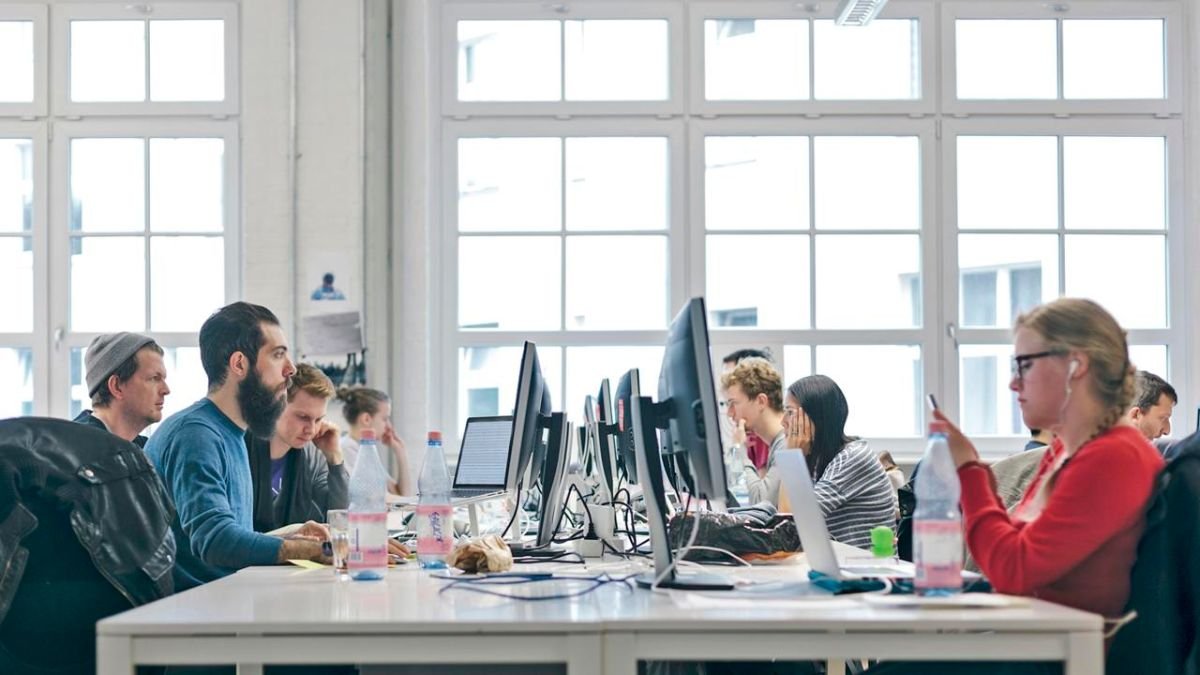Free Address Office Space
Where's My Seat?
Free address. Hoteling. Hot desking. No matter what you call it, the unassigned-seat office has exploded onto the scene over the past few years and is on the rise. Often, due to the increase in the number of employees working from home and the desire for non-traditional settings for different types of work, a company can reduce their overhead by reducing the number of private offices or assigned spaces that they provide within their office walls. This concept is based on data that says as much as 40% of an office's dedicated desk space sits unused on a given day. And with them sitting idle, the question is: is this an efficient use of space? As a result, many offices have adopted the free address mantra where fewer desks serve the same number of employees. This model certainly has both pros and cons.
The Positives
- The company saves in overhead costs: By trimming furniture and hardware costs, some of that wasted space can be better used as a meeting room or other type of sharable space, saving money and benefiting the bottom line.
- Space is optimized for productivity: Employees are more apt to select a space that meets their needs for the day.
- Employees interact and socialize more: Employees who sit beside someone different every day interact more, converse with a greater number of departments, and can find inspiration where it wasn't possible before.
- The "newness" factor: Having a fresh space to sit every day can reduce stagnant feelings or boredom in the office.
The Negatives
- Employees feel uncomfortable searching for a space: From the anxiety of wondering if they'll have a desk for the day, especially if they're late due to traffic or an early meeting, to the politics of sharing space with others, some employees may rather not participate.
- It often takes longer to get settled: If the first half hour of the day is spent finding somewhere to work, spreading out, and getting connected, that is not efficient.
- Removal of the ability to personalize: By having no assigned desk (and thus nowhere to post a family photo or a meaningful trinket), employees can feel lost and untethered, leading to stress and feelings of being under appreciated.
- Territoriality: People who thrive on routines will naturally gravitate to the same spaces, and if someone encroaches on what they've begun to think of as "theirs" even without desk assignments, it can build resentment.
- Hygiene can become an issue: Due to the nature of a shared work space, one worker's sniffle on Monday could become the whole office's nasty cold by Friday.
What did we miss on the pro and con lists? Let us know! If you'd like to read more about the free address office, check out this white paper, a Herman Miller research summary on "The Unassigned Experience", or Knoll's Free Address Workplace Strategies white paper.
Sponsored Article:
Inscape - Nuform Shapes
Open office plans have been rapidly gaining popularity in recent years, with some estimates as high as 70% of current US offices listed as ‘open’ (BBC). Taking this concept to the extreme, many companies are embracing ‘hot-desking’, which are unassigned workspaces offered on a first-come-first-serve basis.
With this trend comes a need for more storage for both professional and personal items in the office environment. Inscape sought to create a solution that provides both style and function.
Nuform Shapes is a collection of modern storage cabinetry that offers a refreshing alternative to traditional rectangular or square cabinets. Nuform Shapes come in a wide selection of beautiful biomorphic forms, colors, textures and patterns and are far superior to traditional laminates in terms of scratch resistance and resilience to sunlight over time.
More than just a storage solution, Nuform Shapes was designed to help create healthier workplaces. Studies have shown positive links between biophilic design and health, like decreased stress, lowered heart rates and blood pressure, and even improved problem-solving and reading capabilities. Available in finishes that mimic marble, concrete and woodgrain, amongst many others, Nuform Shapes are designed to enhance the ambience of any space: the woodgrain finish brings the warmth of the outdoors into a room, concrete plays on an industrial chic aesthetic and marble maintains classic elegance. Finishes that simulate nature, like wood laminates, can mimic the positive psychological benefits of actually being outside.
Nuform Shapes also meets the most rigorous environmental standards; it is BIFMA LEVEL®3 certified, FSC®-certified, and SCS Indoor Advantage Gold Certified. And the best part is they are made of up to 85% recycled content by weight! Nuform Shapes add an unexpected design element to complement any interior and help to provide healthier workplace environments.



